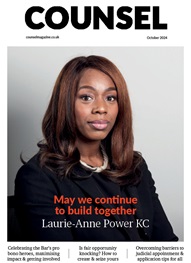*/
Unfair dismissal – Belief discrimination. The employment tribunal (the tribunal) had found that the employee had been fairly dismissed for gross misconduct. However, it had also ruled that he had suffered unlawful direct discrimination and harassment on account of his protected left-wing democratic socialist beliefs. The Employment Appeal Tribunal, in dismissing the employee's appeal, held that, whilst there appeared to be tension between the conclusion that the employee's dismissal was fair and unlawfully discriminatory, provided the tribunal had made findings of fact, correctly applied the relevant statutory test, and reached reasoned conclusions by reference to the facts found that were supported by the evidence, there was no reason in principle why its conclusion could not stand. The findings of unlawful direct discrimination and harassment could not stand where there was no evidential basis to support such findings. Accordingly, the employer's cross-appeal was allowed on those grounds.
Unfair dismissal – Belief discrimination. The employment tribunal (the tribunal) had found that the employee had been fairly dismissed for gross misconduct. However, it had also ruled that he had suffered unlawful direct discrimination and harassment on account of his protected left-wing democratic socialist beliefs. The Employment Appeal Tribunal, in dismissing the employee's appeal, held that, whilst there appeared to be tension between the conclusion that the employee's dismissal was fair and unlawfully discriminatory, provided the tribunal had made findings of fact, correctly applied the relevant statutory test, and reached reasoned conclusions by reference to the facts found that were supported by the evidence, there was no reason in principle why its conclusion could not stand. The findings of unlawful direct discrimination and harassment could not stand where there was no evidential basis to support such findings. Accordingly, the employer's cross-appeal was allowed on those grounds.


Our call for sufficient resources for the justice system and for the Bar to scrutinise the BSB’s latest consultation
Marie Law, Head of Toxicology at AlphaBiolabs, discusses alcohol testing for the Family Court
Louise Crush of Westgate Wealth explains how to make sure you are investing suitably, and in your long-term interests
In conversation with Matthew Bland, Lincoln’s Inn Library
Millicent Wild of 5 Essex Chambers describes her pupillage experience
Louise Crush of Westgate Wealth explores some key steps to take when starting out as a barrister in order to secure your financial future
From a traumatic formative education to exceptional criminal silk – Laurie-Anne Power KC talks about her path to the Bar, pursuit of equality and speaking out against discrimination (not just during Black History Month)
James Onalaja concludes his two-part opinion series
Expectations, experiences and survival tips – some of the things I wished I had known (or applied) when I was starting pupillage. By Chelsea Brooke-Ward
If you are in/about to start pupillage, you will soon be facing the pupillage stage assessment in professional ethics. Jane Hutton and Patrick Ryan outline exam format and tactics
In a two-part opinion series, James Onalaja considers the International Criminal Court Prosecutor’s requests for arrest warrants in the controversial Israel-Palestine situation